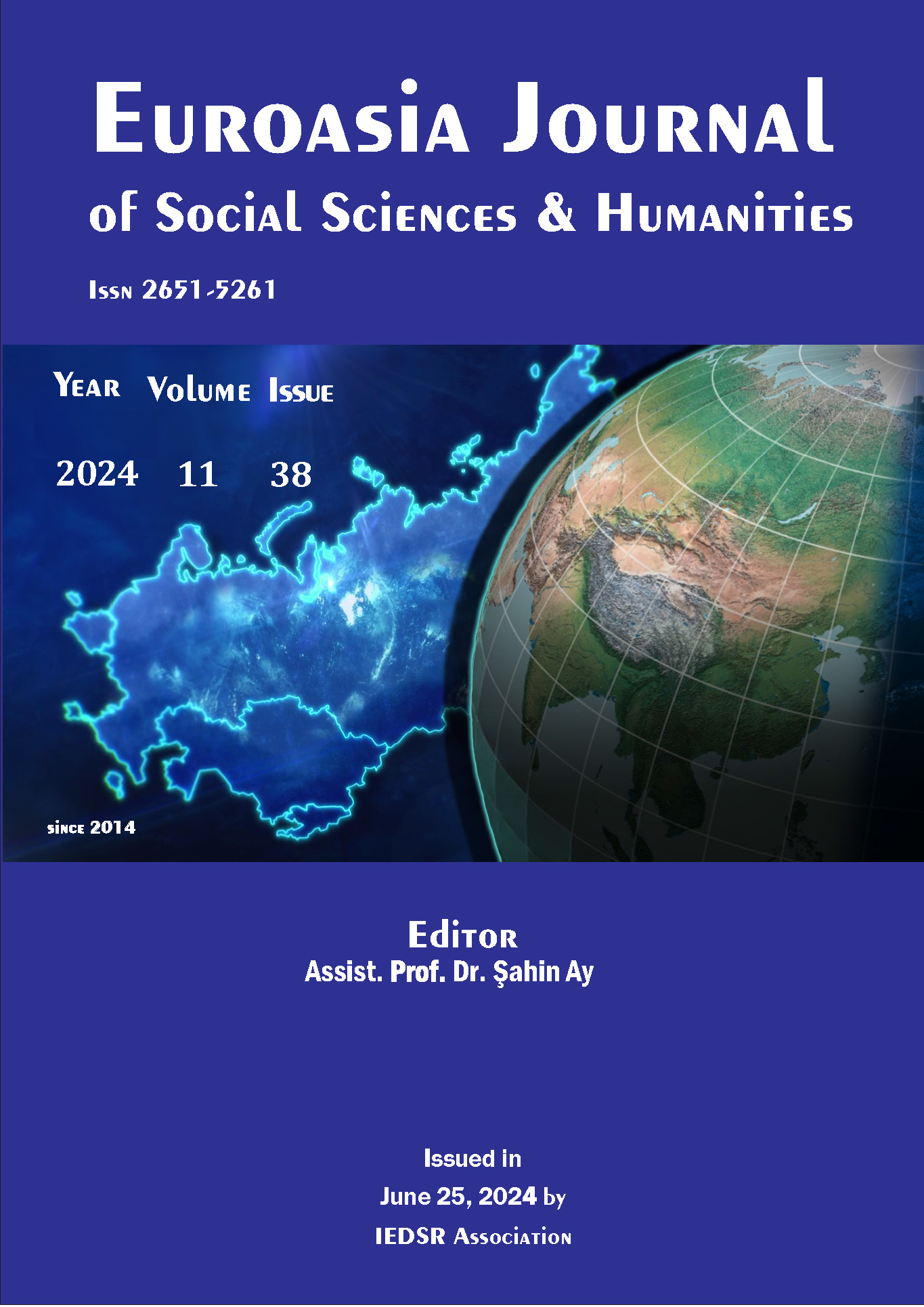Treatment of Anorexia Nervosa with a Cognitive Behavioral Therapy Approach: A Case Study
DOI:
https://doi.org/10.5281/zenodo.12684459Keywords:
anorexia nervosa, cognitive behavioral therapy, eating disordersAbstract
The study was prepared in accordance with the DSM-V criteria. The client is a 25-year-old woman. The sessions were conducted based on the Cognitive Behavioral Therapy approach. The client reported that her distress developed over time but has become more prominent and has negatively affected her quality of life in the last one and a half years. She expressed a significant fear of gaining weight, constantly counting calories, and feeling bad even if she eats low-calorie food, experiencing nausea, and consequently, being in a state of continuous discomfort and eating very little. She also mentioned that she sometimes drinks diuretic teas to relieve her discomfort. In the first session, the client was provided with psychoeducation about Cognitive Behavioral Therapy and her disorder. The study aimed to eliminate the client's distress and improve functionality through a treatment plan consisting of 20 sessions in total, with the first 10 sessions being treatment sessions and the last 10 sessions being control sessions.
Downloads
References
Amerikan Psikiyatri Birliği; “DSM-5 Tanı Ölçütleri Başvuru Kitabı”, çev. Ertuğrul Köroğlu, Hekimler Yayın Birliği, s. 116-117, Ankara, 2013.
Aslan, S., Gürbüz, M., & Vural, S. (2016). Ağır bir Anoreksiyalı Olgunun Bilişsel Davranışçı Psikoterapi Süreci. Bilişsel Davranışçı Psikoterapi ve Araştırmalar Dergisi, 2(1), 94-103.
Başoğul, C., & Buldukoğlu, K. (2015). Depresif bozukluklarda psikososyal girişimler. Psikiyatride Güncel Yaklaşımlar, 7(1), 1-15
Erbay, L. G., & Seçkin, Y. (2016). Yeme bozuklukları. Güncel gastroenteroloji, 20(4), 473-477.
Ergüney Okumuş, F. E. (2017). Tutumlar, inançlar ve üst bilişlerin yeme davranışı üzerindeki yordayıcı etkileri.
ÇINAR, Y., & KARAAZİZ, M. (2023). Anoreksiya Nervoza Olgu Sunumu. ISPEC International Journal of Social Sciences & Humanities, 7(2), 291-295.
Gökdağ, C., & Sütcü, S. (2016). Major depresif bozukluk tedavisinde bilişsel davranışçı grup terapisinin uzun dönemdeki etkililiği: Sistematik bir gözden geçirme. Psikiyatride Güncel Yaklaşımlar, 8(Ek 1), 23-38.
Gümüş, Ç., & Alver, E. (2020). TOPLUM SAĞLIĞININ KORUNMASI BAĞLAMINDA BİR SOSYAL SORUMLULUK VE BİLİNÇLENDİRME KAMPANYASI: ANOREKSİYA NERVOZA FENOMENİ. Avrasya Uluslararası Araştırmalar Dergisi, 8(23), 365-381.
SARI, S. A. ANOREKSIYA NERVOZA.
Şentürk, Z. (2020). Yeme Bozukluğu Hastalarında Tedavi Motivasyonu ve Tedavide Bilişsel Davranışçı Terapi.
Torun, Ö. D. (2019). Majör depresif bozukluk tanısı almış bir grup hastada üstbilişsel işlevlerin incelenmesi (Master's thesis, Çağ Üniversitesi Sosyal Bilimler Enstitüsü).
Tümen, Z. Ç. (2023). Yeme bozukluklarına genel bir bakış. Çukurova Tıp Öğrenci Dergisi, 3(2), 40-45.
Okumuş, F. E. E., & Deveci, E. (2019). Yeme bozukluklarında grup psikoterapileri. Psikiyatride Güncel Yaklaşımlar, 11(3), 338-350.
Özyurt, G., Öztürk, Y., & Akay, A. P. Ergenlerde Yeme Bozuklukları ve Yeme Bozukluklarının Güncel Psikoterapötik Tedavisinin Gözden Geçirilmesi.
Özcan, Ö., & Çelik, G. G. (2017). Bilişsel davranışçı terapi. Türkiye Klinikleri J. Child Psychiatry-Special Topics, 3(2), 115-120.
Downloads
Published
How to Cite
Issue
Section
License
Copyright (c) 2024 EUROASIA JOURNAL OF SOCIAL SCIENCES & HUMANITIES

This work is licensed under a Creative Commons Attribution-NonCommercial 4.0 International License.

